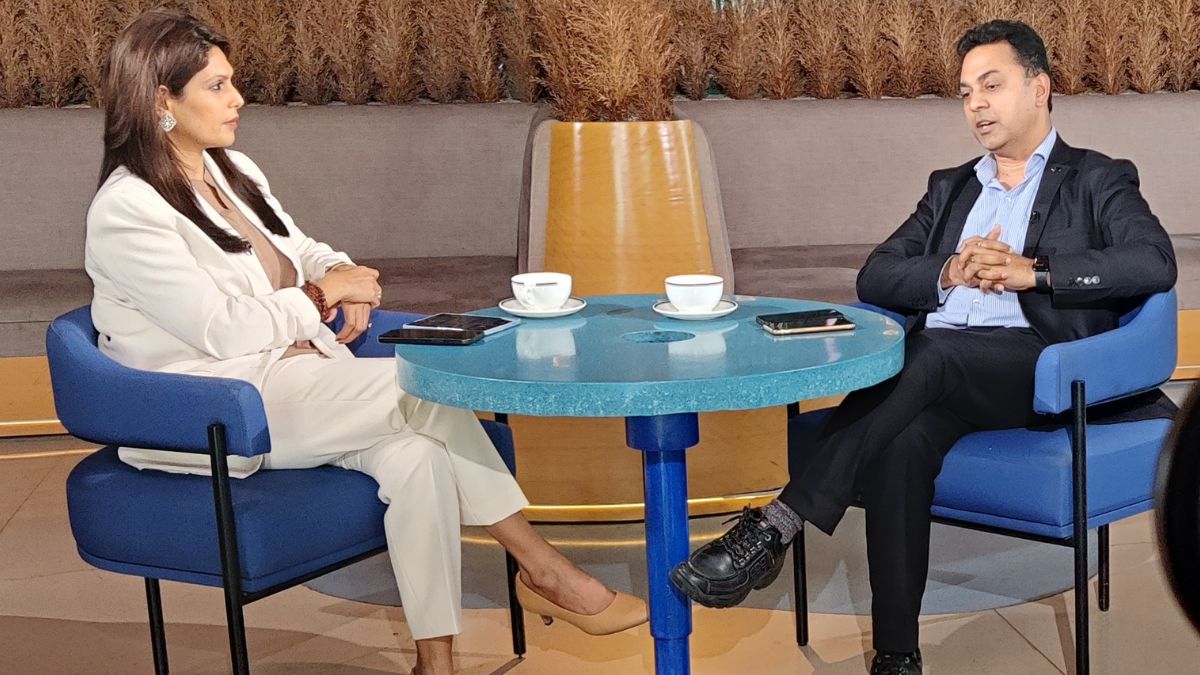Raising debt is not a problem, but debt for freebies or revenue expenditure is problematic, said International Monetary Fund’s (IMF) Krishnamurthy Subramanian.
In an exclusive interview with Firstpost Managing Editor Palki Sharma, IMF Executive Director Subramanian said not all debt is bad and it is only the debt taken for economically unproductive purposes that’s bad.
In response to a question to a number of India’s neighbouring countries finding themselves in Chinese debt trap, Subramanian said that how a country is governed also makes a difference.
Subramanian told Firstpost, “I think when debt is taken to do revenue expenditure or sort of give freebies, that is what typically leads to the debt trap. And I think this is that this nuance needs to be understood very well…When countries have taken debt to fund revenue expenditure, governance is involved too and I think that’s an aspect that countries need to focus on as well.”
Subramanian’s remarks come at a time when Pakistan and Sri Lanka in India’s immediate neighbourhood are staying economically afloat on the back of IMF’s bailout. Both the countries have had to implement tough economic measures which have proved to be unpopular.
Good
Subramanian made a distinction between India and its neighbouring countries. He noted that even though India has also raised debt in recent years, it is quite sustainable as it is productive purposes. He laid out when debt is good and what makes debt bad.
“During Covid, India did increase its debt to GDP [ratio]. At that time, we had written an economic survey saying that India’s debt to GDP will come back to 80 per cent. Why? Because that debt was taken for capital expenditure. When debt is taken for asset creation, that is infrastructure creation, that aids and enables growth in a country and that is good,” said Subramanian.
Impact Shorts
More ShortsIf debt is taken, however, only to provide subsidies or invest in expensive expenditure programmes that do not lead to value creation, then that is “basically a recipe for a debt trap”, said Subramanian.
Whether at the level of a household or the nation, any debt raised to acquire assets that bring in efficiency or productivity, such as a car or a two-wheeler at the level of a household, is good, said Subramanian.
“If it leads to asset creation, that is something that is good and that’s the lesson that all countries need to keep in mind from the perspective of debtors,” said Subramanian.
‘You need to take the medicine — even if bitter’
When asked about the tough measures, such as increase in taxes and revenue streams and cut in subsidies, that often come with IMF’s bailouts, Subramanian said that sometimes the only way is to take the bitter medicine.
Subramanian said that if the situation is such that you have to approach the IMF, the lender of the last resort, then making the required changes and taking the bitter medicine is the only way.
Subramanian further said that the IMF should not be blamed for the hardships that corrective steps bring in a country as the hardships are a result of wrong steps taken by the country’s government, not the IMF.
“The important aspect that must be kept in mind is that many times, the medicine that is being given is medicine that the government should have implemented much before. Otherwise, the problem wouldn’t have happened. When you became sick and go to a doctor, the doctor gives the medicine, and you don’t blame the doctor for giving medicine, maybe bitter medicine. You thank the doctor for diagnosing the problem and giving you medicine,” said Subramanian.
Many countries take debt for expenditure “that is not optimal and that is what leads to these problems”, said Subramanian.


)

)
)
)
)
)
)
)
)



